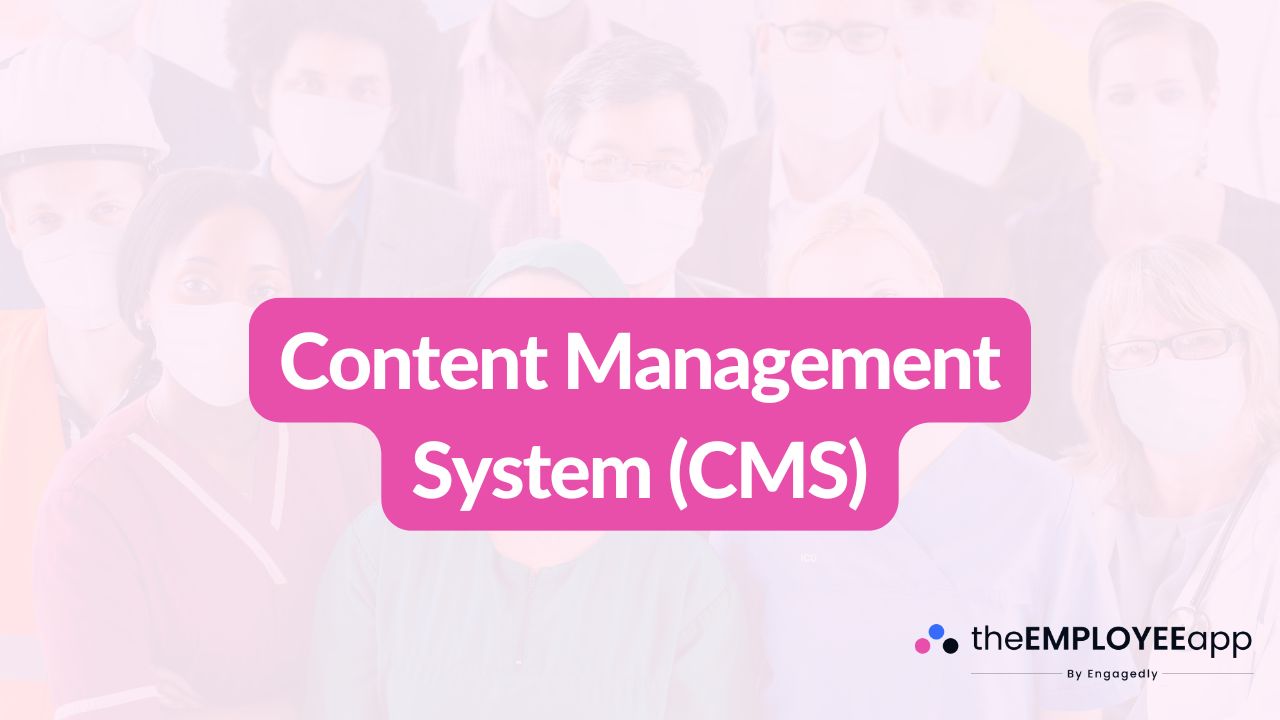
Content Management System (CMS)
A Content Management System (CMS) is a software platform that allows individuals and organizations to create, manage, and publish digital content without needing deep technical expertise. CMS platforms are designed to simplify the process of building websites, storing information, and maintaining digital resources, making them an essential tool for modern businesses. With a CMS, users can edit content through a user-friendly interface rather than working directly with code.
Why a CMS Matters
In today’s digital-first world, companies need to constantly update and optimize content to meet the expectations of their audience. Whether it’s a blog post, a landing page, a knowledge hub, or an employee communication portal, content must be easy to update and share. A CMS empowers non-technical teams to contribute to these updates, ensuring that businesses remain agile and efficient. It reduces reliance on IT staff and provides a central hub for managing content securely and consistently.
Core Features of a CMS
A robust Content Management System offers features that streamline both content creation and delivery. Common capabilities include:
Content creation and editing: Tools for writing, formatting, and updating text, images, and media with ease.
Publishing workflows: The ability to schedule, approve, and review content before it goes live.
User management: Role-based permissions to control who can create, edit, or approve content.
Design flexibility: Templates and themes that allow customization without advanced coding.
Version control: Tracking changes to content and restoring previous versions if necessary.
Integrations: Connections with other tools like analytics, CRM, or marketing automation systems.
These features make a CMS not just a publishing tool, but a backbone for digital strategy.
Benefits of Using a CMS
Ease of use: Even non-technical users can create and update content.
Time efficiency: Faster publishing reduces bottlenecks and speeds up communication.
Collaboration: Multiple users can work together with clear roles and permissions.
Scalability: CMS platforms can support organizations of all sizes, from small teams to global enterprises.
SEO optimization: Many CMS platforms include built-in tools to improve search engine visibility.
Consistency: Templates and style guides ensure brand consistency across all content.
CMS in the Workplace
Beyond public websites, many organizations use a CMS internally to manage documents, training materials, announcements, and other forms of communication. For example, an employee app powered by a CMS can serve as a central hub where staff access news, policies, and resources. This ensures that employees stay informed and aligned with organizational goals.
Examples of How CMS is Used
A marketing team publishes blogs, product updates, and landing pages to attract and engage customers.
HR teams store employee handbooks, training guides, and announcements in a central CMS for easy access.
Internal communications teams use a CMS-driven platform to share real-time updates and leadership messages.
Companies undergoing change management use a CMS to provide employees with consistent, accessible information.
These examples show that a CMS is more than just a website builder—it is a powerful content engine that supports communication, engagement, and knowledge sharing.
Best Practices for CMS Success
To maximize the value of a CMS, organizations should:
Define clear goals for what they want to achieve with the platform.
Train users so that staff can fully leverage the system’s features.
Keep content updated to ensure relevance and accuracy.
Monitor performance using analytics to track which content resonates.
Ensure security through proper permissions, backups, and updates.
The Future of CMS
Modern Content Management Systems are evolving rapidly. Many now integrate with artificial intelligence to personalize content delivery and recommend improvements. Cloud-based CMS platforms offer flexibility for remote teams, while mobile-first solutions ensure that content is accessible anywhere. As businesses continue to embrace digital transformation, CMS tools will remain at the heart of how organizations share knowledge and connect with audiences.
Conclusion
A Content Management System (CMS) is an indispensable tool for managing digital content efficiently and effectively. By simplifying the creation, organization, and publishing process, a CMS empowers teams to focus on delivering value rather than struggling with technology. Whether used for a public-facing website or an internal employee platform, a CMS ensures that content is always accessible, engaging, and aligned with organizational goals.
